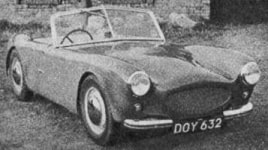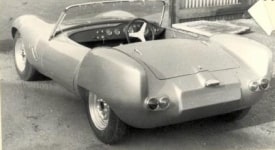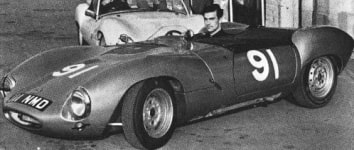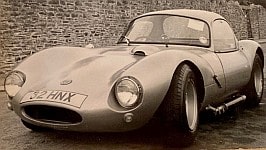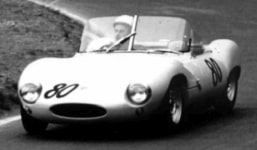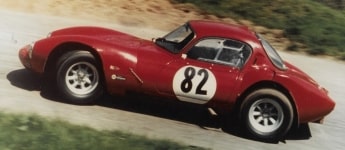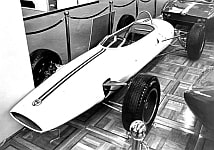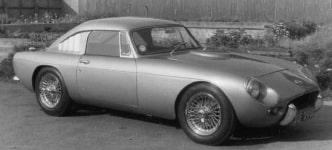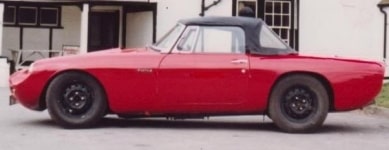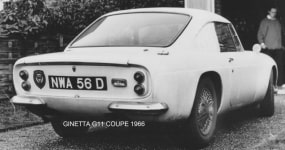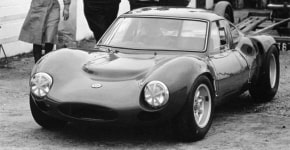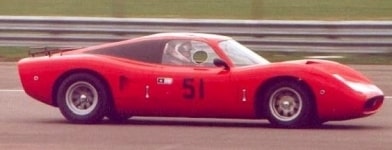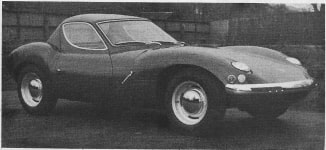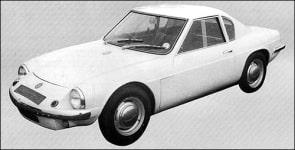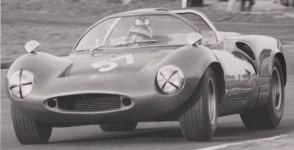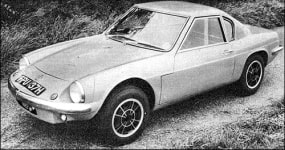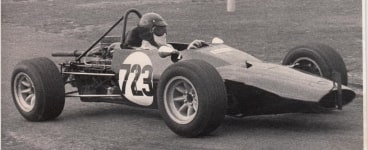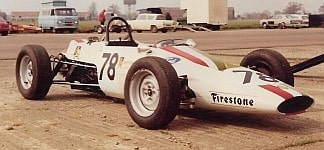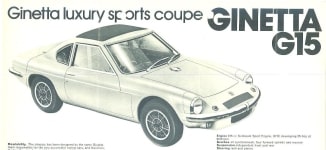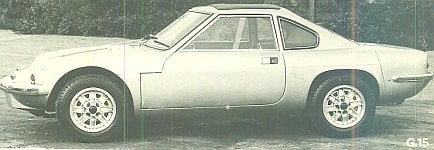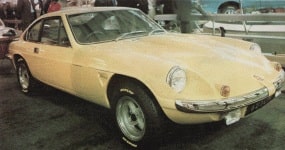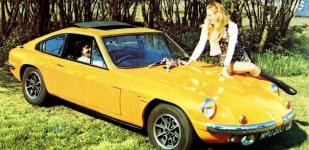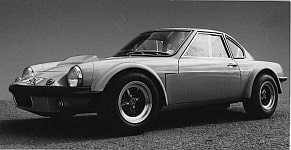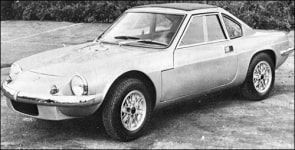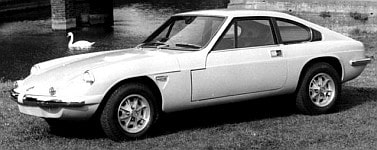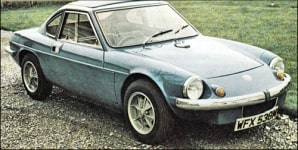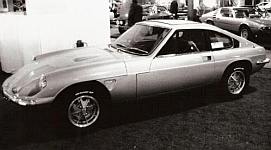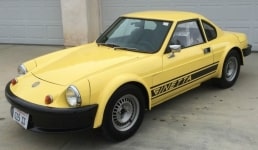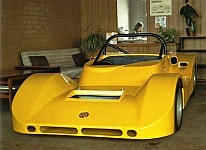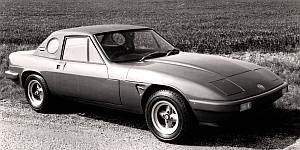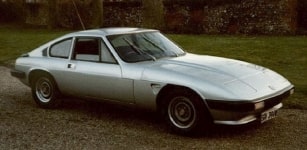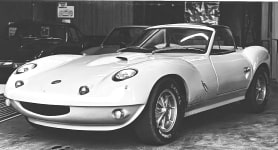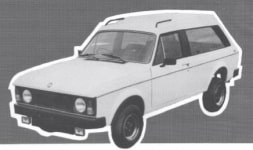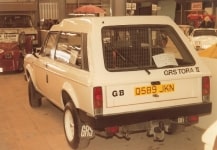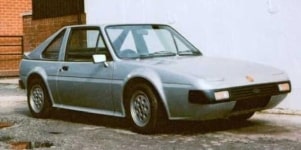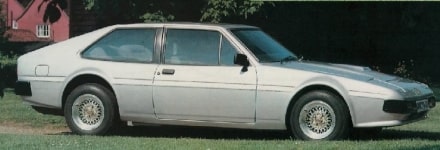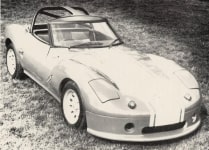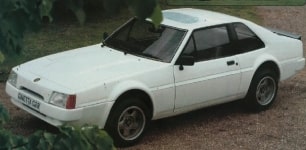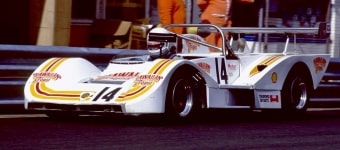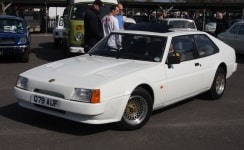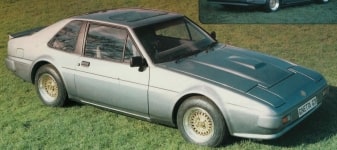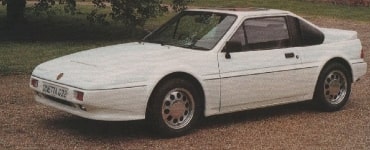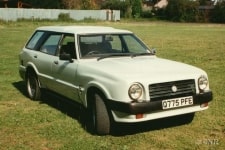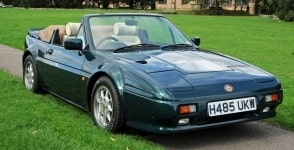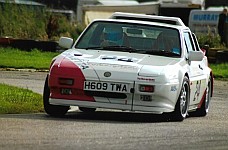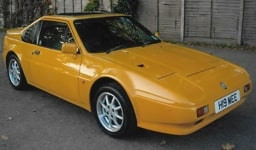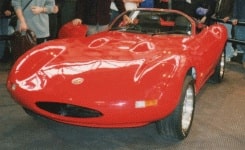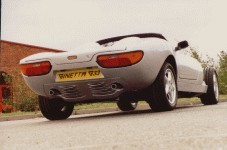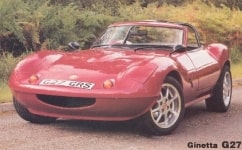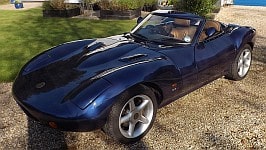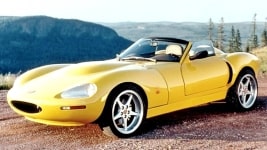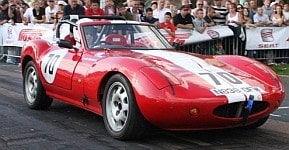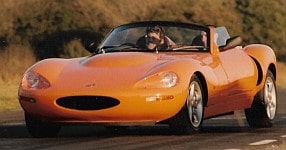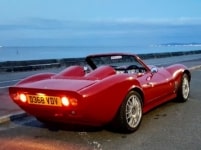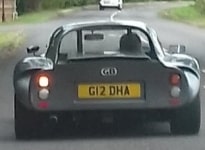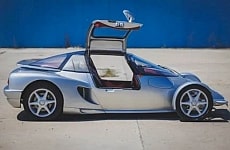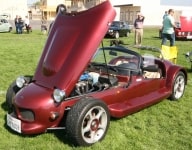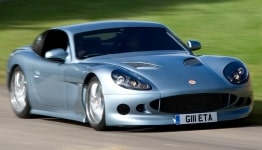 Updates from the FBHVC - Newest at the top
Updates from the FBHVC - Newest at the top
FBHVC News - Kindly reproduced with permission.
The following 2 article maybe of interest to some of our aging members and those “considering the purchase of a classic?”
The 3rd refers to the “Drive it Day” that some of you have taken part in, in the past
Are You Fit To Drive
I spotted the following news release a few weeks ago:
“DVLA announces change in the law to enable more healthcare professionals to complete medical questionnaires”
This headlined that from the 20 July, the law has changed to enable healthcare professionals other than doctors to complete DVLA medical questionnaires following notification of a medical condition that may affect an individual’s driving. The change to the Road Traffic Act 1988 now allows doctors to refer medical questionnaires to colleagues such as specialist nurses and opticians from other professional bodies. This enables log jams to be cleared and will take pressure off overburdened GPs.
However the news release prompted me to recall correspondence earlier this year concerning the withdrawal of the licence from a very elderly HV driver. The circumstances were that he had taken his frail wife and injured wife to her medical centre and her GP (not his) had apparently instigated a recommendation to DVLA that he was not safe to drive. The correspondent felt that there was a case for getting his licence reinstated, but if he could not achieve that, he wanted to via the FBHVC “make sure that elderly drivers of Historic Vehicles are not unduly penalised for simply being elderly.”
Given the apparently unblemished driving career of the elderly driver, it indeed was a shame that he might now have the shutters brought down on his ability to drive.
However on the basis of the information provided, particularly concerning the age of the individual the fact the matter arose from a visit to a medical practice albeit in relation to his wife rather than himself, it would appear the recommendation to DVLA was prompted by a medical professional. I stressed that such a recommendation would be on medical not age grounds.
First of all I reminded myself and the correspondent of the statutory background to medical fitness to drive. In the DVLA Manual Assessing fitness to drive– a guide for medical professionals which can be viewed at https://assets.publishing.service.gov.uk/government/uploads/system/uploads/attachment_data/file/965900/MIS828_interactive_020321_Final.pdf, it is made clear that the DVLA is legally responsible on behalf of the Secretary of State for deciding if a person's licence should be revoked on the grounds of medical unfitness. This means they need to know if a person holding a driving licence has a condition or is undergoing treatment that may now, or in the future, affect their safety as a driver. Given the age of this driver he will have had to certify his fitness every three years in order to renew his licence.
More importantly given the circumstances of this case, a medical professional is under a duty to notify the DVLA of any injury or condition if there is concern for road safety, which would be for both the individual and the wider public. Normally the medical report to the DVLA would be with the consent of the individual but this duty transcends patient confidentiality.
According to the above Manual, once DVLA is notified of a medical condition and obtains consent, it will make medical enquiries as required and it will not make a licensing decision until all the relevant medical information is available and has been considered. Exceptions to this do exist, specifically DVLA’s ability to revoke a licence immediately in the interests of road safety and without detailed enquiry if individual case circumstances dictate this. The medical enquiries procedure is generally a two-stage process:
- Information on the medical condition is sought from the licence holder or applicant, either by paper questionnaire or online.
- Information is sought from relevant healthcare professionals, either by questionnaire or provision of medical notes.
In some circumstances DVLA will require an independent review by a DVLA-appointed doctor or other specialist. Depending on individual circumstances, a licence applicant may also require a driving assessment and/or appraisal. If an applicant is not content with the DVLA decision then the following action can be taken:
- Write and make representations to DVLA with additional relevant medical or specialist information that was not included in the original assessment. This must include proof that the required standards for driving are met (these are explained in the decision letter sent by the DVLA). Details of where to send an appeal are here: https://www.gov.uk/driving-medical-conditions/what-dvla-will-decide
- If the above is rejected, an appeal can be made to the local magistrate’s court within 6 months, (or sheriff’s court in Scotland within 21 days).
So although an official will make the decision, the assessments are medically based.
I indicated that the Federation could not reasonably make a general statement that elderly drivers are being penalised simply on the basis their age. Without detailed evidence of widespread iniquities on the part of DVLA, it would be inappropriate to take a broad brush position in relation to what must often be finely balanced but justifiable decisions on individual cases with different facts. It is the case that many club members are more “senior” and are increasingly vulnerable to the health problems related to old age even if age itself is not the criteria for revoking a licence. Many will have been driving for many decades safely and without incident and may feel they are fine. However, to adapt an investment analogy, “Past performance is no guarantee of continued successful performance.” If an elderly driver will not accept they are too infirm to continue at the wheel, it is for medical professionals to intervene.
I did agree however to highlight in this Newsletter the appeals process for those who might have a similar experience which I have now done!
Seddon v DVLA
May I take the liberty of finishing on something that I am more comfortable with – English case law. The case I am due to refer to is one which is of more than passing interest to my proficient DVLA colleague, Ian who, as represented in his regular column, valiantly represents the interests of HV owners over registration problems.
Back in 2018, a single judge of the High Court found for the DVLA in the preliminary issue in a case brought by a Mr Seddon for damages (£150,000) against the DVLA. In brief outline, he had bought what turned out to be a replica AC Cobra for £250,000, it having been granted age related plates on the basis of an application for registration by a previous owner which claimed original registration and manufacture in 1964. The car was actually a rebuild consisting of refurbished or new parts to original specification.
Suspicions arose at the DVLA about the entitlement to its age related registration in August 2014 and they commenced an investigation. Mr Seddon purchased the car in October 2014 whose own concerns were aroused by him not receiving a new V5C as he expected when he applied to be registered as the new owner. When he inquired with DVLA, they told him the registration was under investigation which they indeed undertook (with all their correspondence going to the seller and not Mr Seddon). In March the following year the age related plate was cancelled and a Q Plate issued. Mr Seddon cut his losses and sold the car for £100,000, the difference between that and the purchase price being the basis of his damages claim. The preliminary issue to be decided on was whether the DVLA owed a duty of care to Mr Seddon to inform him as a prospective purchaser of their (DVLA) concerns. He lost principally on the basis that the judge held DVLA’s only duty was a statutory one which is the collection of vehicle excise duty. Based on other case law concerning foreseeability and proximity, she held that no duty of care was owed to Mr Seddon.
Of interest to me and something that I confess I had overlooked is that Mr Seddon appealed and lost again. https://www.bailii.org/cgi-bin/format.cgi?doc=/ew/cases/EWCA/Civ/2019/14.html&query=(title:(+seddon+))
Even those less attached to the law than me might find this appeal judgment interesting. Is the door closed to further potential legal action against the DVLA? Well perhaps this case is a deterrent to trying for a damages claim based on a breach of duty of care, but there are other forms of legal action where a public authority’s decision making can be challenged!
Drive It Day 2023
Save the Date - Due to the successes of the 2021 and 2022, the next Drive It Day & Ride It Day will be on Sunday 23rd April 2023.
We shall soon be launching the sale of our new Drive It & Ride It Day vehicle plates. All variants will be available to purchase very soon.
Once again, all profits from the sale of our fundraising vehicle plates will be donated to Childline® so they may continue to run the vital service they provide children and young people.
Childline® offer a 24 hour service and aim to be available for every telephone call or online contact received. This support network is a hugely vital and necessary service and can almost be classed as an emergency service for the most vulnerable. For any child or young person in desperate need of help, Childline® counsellors are there to assist. We know members of the historic vehicle community are friendly and always aim to be there for one another if an enthusiast needs help, advice, or even a spare part to get their vehicle back on the road. Let’s extend our community spirit and help those who desperately need assistance. Let’s be there for our children and young people and support the wonderful work Childline® do. After all, they’re the next generation of historic vehicle enthusiasts!
How to Order
Please visit www.driveitday.co.uk and follow the online prompts. Alternatively, if you do not have access to an online facility please contact the office directly on 01708 223111.
We are conscious that postage costs have increased quite dramatically since the start of the year. To assist by not having the postage cost deducted from the amount you pay for a vehicle plate why not order your plates in advance and collect at the Classic Motor Show being held at the Birmingham NEC between 11-13 November 2022? This will ensure the maximum amount of profit can be donated to support Childline®.
For any clubs wishing to purchase a quantity of plates, please also feel free to pre-order by contacting the office via email (secretary@fbhvc.co.uk). Again, collection can be made at the Classic Motor Show in November.
FBHVC information - kindly reproduced with permission.
Federation of British Historic Vehicle Clubs – 2020 National Historic Vehicle Survey
I am writing to seek your assistance with the Federation’s 2020 survey.
You have already kindly supported us by completing the Federation’s survey regarding Covid-19 and the effects it is having on historic vehicle clubs. Our report was published on 1 June 2020 and has already been widely circulated, including within Government circles. A copy has been sent to all our member clubs but if you have not yet seen a copy please accept my apologies, it can be found very easily on the FBHVC website (https://www.fbhvc.co.uk/) under the Research tab at the top of the page or via https://fbhvc.co.uk/covid-19-survey .
The next two surveys we are undertaking are part of the 2020 National Historic Vehicle Survey. A survey for all enthusiasts and a survey for Clubs both of which are designed to build on the information gained in our 2016 survey. (A copy of the 2016 survey can be found on this link https://www.fbhvc.co.uk/past-research-projects).
Our 2016 survey showed that the historic vehicle community is worth over £5.5 billion to the UK economy each year, that over 34,000 people are involved in businesses involved in the repair, maintenance and preservation of historic vehicles and that there were just over 1 million historic vehicles (those over thirty years old) registered with the DVLA.
An initial review of an extract of the DVLA data as at March 2020 suggests that there are around 1.5 million vehicles that can be described as historic. It is likely therefore that the combined effect of spending on these vehicles and activities associated with them will be well above £5.5 billion but we need your help to find out what it is.
We are seeking ‘survey ambassadors’ to be appointed by Clubs who wish to help publicise the research that will be used to help protect and defend the use of our vehicles. The role of the ambassador will be to help us promote the survey both within your Club and beyond. Our aim is to get a broad coverage from enthusiasts for all types of vehicle. We ask that you, or one of your Club colleagues help the Federation to defend our rights to continue to use ‘Yesterdays vehicles on tomorrows roads’. Just follow the link below, fill out the form and we will be in touch.
The second part of the National Survey is a survey for Clubs to complete. Given that you completed the Covid-19 survey on behalf of your Club we presume you are likely to be the Club Official most appropriate to complete this survey. Please click on the link below, to access the Club survey.
TO VOLUNTEER TO BECOME A SURVEY AMBASSADOR PLEASE CLICK HERE or CLICK https://eqi.typeform.com/to/PyqFOp
TO ACCESS THE 2020 CLUB SURVEY PLEASE CLICK HERE OR CLICK https://www.fbhvc.co.uk/2020-club-survey
ClubCOVID-19SurveyA summary of the results of the FBHVC Survey undertaken in May 2020 (see link below)
file:///C:/Users/MYASUS~1/AppData/Local/Temp/Club%20Covid19%20final%20report%201%20june%2020a.pdf
Survey reveals vehicle clubs are turning to digital media to engage members during pandemic. The Federation of British Historic Vehicle Clubs has been supporting its member organisations with guidance throughout the COVID-19 pandemic. With the publication of the results of last month’s survey into the effects of pandemic upon historic vehicle clubs, the FBHVC is able to factually assess the impact of COVID-19 on the historic vehicle club community. The results represent responses from nearly half of the 540 member organisations of the FBHVC and offer an insight into the effects of the pandemic, both financially and operationally, on historic vehicle clubs. The research survey also details the steps clubs are putting in place, to adapt to the very difficult challenges ahead. Reacting to the results, David Whale, FBHVC Chairman said, “It was important for us to ensure that we understand the challenges that our historic vehicle clubs are facing in order to ensure that we are working in the right directions to support them. Also, that the results of this survey were published in detail in order that our member clubs can share inspiration and ideas. It has been impressive to discover just how creative and quick to adapt some clubs have been to keep their members engaged and supported throughout these difficult times. Clearly though, there are some concerns over the future of finances within some clubs so it is now that members should rally and support their clubs where possible to secure a healthy future for the historic vehicle movement on the other side.” Financially, 53% of historic vehicle clubs have reported that, so far, their finances have not been affected. However, 40% are expecting a decrease in membership as a result of the pandemic’s restrictions on social events and difficult personal circumstances experienced by club members. A small proportion, (26%) have made or are considering making special arrangements concerning subscriptions in the future. Events have been hard hit with an incredible number of cancellations. Over 10,000 club social gatherings and events having been cancelled during the past three months, in a list that ranges from major national fixtures to local area meets. The vast majority of clubs (69%) have been forced to cancel their major annual rally amidst concerns over managing social distancing requirements and the reluctance of many to attend potentially crowded venues in the near future. The cancellation of these events is responsible for the concerns of many of the clubs that reported expected financial impacts from COVID-19. Overall the survey respondents reported that clubs have significantly increased their activities on social media, online content creation and video conferences. Many clubs also stated that they are taking special measures to keep in touch with older members as well, showing that clubs have really rallied around to care for the more vulnerable amongst the historic vehicle community. The extra time afforded by lockdown has had some positive side effects however, with clubs reporting that within their membership, there has been strong evidence that many members have used the extra time to restart stalled restoration projects. Clubs have reacted to this by offering technical advice lines as well as spares groups and other support features for members undertaking restoration projects. Press Release page 2 of 2 Communication has been a key focus for most historic vehicle cubs with many turning to the digital space in order to fill the void left by the lack of social gatherings and events. Just some of the initiatives reported back to the FBHVC included e-Newsletters, regular social media content and daily online articles. A couple of clubs have even created a podcast series to entertain club members and share fascinating interviews with the wider historic vehicle world. Print has remained crucial. Many clubs have increased the page count of print magazines and produced more long form articles within them. This has made up part of a strategy to ensure that vitally important club magazines were able to entertain and inform in equal measure. Many clubs however, did balance that with a marked drop in advertising revenue. To keep the social interaction high within clubs, FBHVC member organisations have used video conferencing extensively by utilising platforms such as Zoom, Skype and Microsoft Teams. Clubs have held virtual events, broadcast guest speakers and even held ‘virtual pub quizzes.’ But the one to one nature of clubs has not been lost either, with many creating groups on Whatsapp to keep in touch with friends and ensure that one-to-one phone calls are made regularly to check on how members are coping and to offer support where needed. The survey also revealed some of the attitudes to the medium- and long-term future of club activities. Regarding events; 61% of clubs are still hoping to hold some of sort of events later on in the year, a move also echoed by Clarion Events, who confirmed their intentions to proceed with the November NEC Classic Motor Show. The results also suggest that next year could prove to be a very busy one, with 50% of all the cancelled events from this year planning to be held in 2021, alongside what might have already been planned for that season. A number of clubs are holding on-line Annual General Meetings, despite relaxation of Companies House rules on the requirements of AGMs. Only 35% of clubs responded to say that they were not taking any special action in the future to support members. A full summary of the results is available online at: www.fbhvc.co.uk
Published 2/6/2020
Survey reveals vehicle clubs are turning to digital media to engage
members during pandemic.
The Federation of British Historic Vehicle Clubs has been supporting its member organisations with
guidance throughout the COVID-19 pandemic. With the publication of the results of last month’s
survey into the effects of pandemic upon historic vehicle clubs, the FBHVC is able to factually assess
the impact of COVID-19 on the historic vehicle club community.
The results represent responses from nearly half of the 540 member organisations of the FBHVC and
offer an insight into the effects of the pandemic, both financially and operationally, on historic vehicle
clubs. The research survey also details the steps clubs are putting in place, to adapt to the very
difficult challenges ahead.
Reacting to the results, David Whale, FBHVC Chairman said, “It was important for us to ensure that
we understand the challenges that our historic vehicle clubs are facing in order to ensure that we are
working in the right directions to support them. Also, that the results of this survey were published in
detail in order that our member clubs can share inspiration and ideas. It has been impressive to
discover just how creative and quick to adapt some clubs have been to keep their members engaged
and supported throughout these difficult times. Clearly though, there are some concerns over the
future of finances within some clubs so it is now that members should rally and support their clubs
where possible to secure a healthy future for the historic vehicle movement on the other side.”
Financially, 53% of historic vehicle clubs have reported that, so far, their finances have not been
affected. However, 40% are expecting a decrease in membership as a result of the pandemic’s
restrictions on social events and difficult personal circumstances experienced by club members. A
small proportion, (26%) have made or are considering making special arrangements concerning
subscriptions in the future.
Events have been hard hit with an incredible number of cancellations. Over 10,000 club social
gatherings and events having been cancelled during the past three months, in a list that ranges from
major national fixtures to local area meets. The vast majority of clubs (69%) have been forced to
cancel their major annual rally amidst concerns over managing social distancing requirements and
the reluctance of many to attend potentially crowded venues in the near future. The cancellation of
these events is responsible for the concerns of many of the clubs that reported expected financial
impacts from COVID-19.
Overall the survey respondents reported that clubs have significantly increased their activities on
social media, online content creation and video conferences.
Many clubs also stated that they are taking special measures to keep in touch with older members as
well, showing that clubs have really rallied around to care for the more vulnerable amongst the
historic vehicle community.
The extra time afforded by lockdown has had some positive side effects however, with clubs reporting
that within their membership, there has been strong evidence that many members have used the
extra time to restart stalled restoration projects. Clubs have reacted to this by offering technical
advice lines as well as spares groups and other support features for members undertaking restoration
projects.
Communication has been a key focus for most historic vehicle cubs with many turning to the digital
space in order to fill the void left by the lack of social gatherings and events. Just some of the
initiatives reported back to the FBHVC included e-Newsletters, regular social media content and daily
online articles. A couple of clubs have even created a podcast series to entertain club members and
share fascinating interviews with the wider historic vehicle world.
Print has remained crucial. Many clubs have increased the page count of print magazines and
produced more long form articles within them. This has made up part of a strategy to ensure that
vitally important club magazines were able to entertain and inform in equal measure. Many clubs
however, did balance that with a marked drop in advertising revenue.
To keep the social interaction high within clubs, FBHVC member organisations have used video
conferencing extensively by utilising platforms such as Zoom, Skype and Microsoft Teams. Clubs
have held virtual events, broadcast guest speakers and even held ‘virtual pub quizzes.’
But the one to one nature of clubs has not been lost either, with many creating groups on Whatsapp
to keep in touch with friends and ensure that one-to-one phone calls are made regularly to check on
how members are coping and to offer support where needed.
The survey also revealed some of the attitudes to the medium- and long-term future of club activities.
Regarding events; 61% of clubs are still hoping to hold some of sort of events later on in the year, a
move also echoed by Clarion Events, who confirmed their intentions to proceed with the November
NEC Classic Motor Show. The results also suggest that next year could prove to be a very busy one,
with 50% of all the cancelled events from this year planning to be held in 2021, alongside what might
have already been planned for that season.
A number of clubs are holding on-line Annual General Meetings, despite relaxation of Companies
House rules on the requirements of AGMs. Only 35% of clubs responded to say that they were not
taking any special action in the future to support members.
A full summary of the results is available online at: www.fbhvc.co.uk
[ends]
For media enquiries, please contact:
• Wayne Scott at Classic Heritage PR, 07759 260899. wayne@classicheritagepr.co.uk
Published 30/4/2020
Federation of British Historic Vehicle Club announce new Legislation Manager
The Federation wishes to publicly welcome Ian Edmunds to the role of Legislation Manager with immediate effect. Many from the historic vehicle community will already know Ian from his work on DVLA matters in his role as DVLA Liaison Manager for the Federation.
The change follows the resignation of Mr Dave Daniel earlier this week. Dave Daniel had served the Federation for a relatively short time, but his resignation was for personal, close family reasons. All at the FBHVC send our best wishes to him and his family and thank him for his work for the Federation during his tenure.
In these challenging times, continuity of leadership is obviously critical and the board of directors is pleased that Ian Edmunds, an existing, long term legislation committee member has volunteered as Acting Chairman for a period of up to twelve months. Ian will also continue his role as DVLA Liaison Manager, itself a challenging task as our contacts within the Vehicle Policy team in Swansea have changed completely in the last few weeks.
Ian’s interests embrace a diverse collection of historic vehicles including a 1927 Alvis 12/50, two Brough Superiors and two Honda motorcycles, one being Ian’s current project a 1966 CB450 K0.
Commenting on the news, Federation Chairman, David Whale said “Ian has the unanimous support of the board in stepping up to this challenge. To further reinforce the team at this difficult time, former Legislation Director, Bob Owen, has offered to also return as a member of the legislation committee.”
The recruitment process for a new Legislation Director will commence shortly.
[ends]
For media enquiries, please contact:
- Wayne Scott at Classic Heritage PR, 07759 260899. wayne@classicheritagepr.co.uk
About the FBHVC:
The Federation of British Historic Vehicle Clubs exists to uphold the freedom to use historic vehicles on the road. It does this by representing the interests of owners of such vehicles to politicians, government officials, and legislators both in the UK and (through the Federation Internationale des Vehicules Anciens) in Europe.
There are over 540 subscriber organisations representing a total membership of over 250,000 in addition to individual and trade supporters. All our directors operate in a voluntary capacity supported by our secretary.
Website: www.fbhvc.co.uk
Published: 24/4/2020
Federation of British Historic Vehicle Clubs reminds clubs to share their #DriveitDayMemories this weekend.
Sunday 26 April 2020 would, under normal circumstances, have seen thousands of historic vehicles take to the roads across the UK to celebrate the season opening FBHVC National Drive It Day.
However, due to the Coronavirus pandemic, activities that involve taking a historic vehicle out on the road specifically for the purposes of Drive it Day, have had to be abandoned. All enthusiasts are now urged to stay at home on 26 April 2020 and not partake in any non-essential travel for Drive it Day. Instead, the FBHVC invite you to get involved in a nationwide social media campaign to spread positivity around the historic vehicle community during this difficult time.
Don’t have access to social media? That’s OK as well, because the FBHVC have created a website where owners and organisations can easily upload their photos to share with the national effort to raise awareness around our important freedoms to use transport heritage in all its diverse forms. It’s not just cars either that we are hoping to see, so do get involved if you have images of motorcycles, commercial vehicles, buses, agricultural vehicles and traction engines for example.
All you have to do is visit www.driveitday.co.uk and click the upload button. There you will be directed to a very simple form that will enable you to submit your photos for inclusion on the site. We will be accepting submissions for a whole month, until May 26 2020 to give everyone the opportunity to contribute to, view and enjoy your images.
Those individuals and clubs that do have social media access are encouraged to participate on 26 April 2020 in the mass sharing, via social media, of images and memories of themselves and their families out and about in their historic vehicles during a previous year’s Drive it Day – using the hashtag #DriveitDayMemories.
Our website at www.driveitday.co.uk will curate those images into a single display and we will also of course share them across the FBHVC channels to draw attention to your club or organisation.
So, use your chosen social media platform this weekend to share images and stories of memorable trips with your historic vehicles or indeed, what you might be working on within the ‘self – isolation’ of your garage or shed.
Use the hashtag #DriveitDayMemories and we can’t wait to see your photos and memories!
[ends]
For media enquiries, please contact:
- Wayne Scott at Classic Heritage PR, 07759 260899. wayne@classicheritagepr.co.uk
About the FBHVC:
The Federation of British Historic Vehicle Clubs exists to uphold the freedom to use historic vehicles on the road. It does this by representing the interests of owners of such vehicles to politicians, government officials, and legislators both in the UK and (through the Federation Internationale des Vehicules Anciens) in Europe.
There are over 540 subscriber organisations representing a total membership of over 250,000 in addition to individual and trade supporters. All our directors operate in a voluntary capacity supported by our secretary.
Website: www.fbhvc.co.uk
Published: 23/03/2020
Federation of British Historic Vehicle Clubs updated statement on Drive it Day 2020
#DriveitDayMemories
The FBHVC is committed to following the latest UK Government advice on events and public gatherings pertinent to our member clubs and as such, the following statement replaces all previous correspondence regarding National Drive it Day during this fast-moving situation.
In response to the updated guidance and restrictions issued by UK Government, the Federation recommends that all activities that involve taking a historic vehicle out on the road specifically for the purposes of Drive it Day, now be abandoned. All enthusiasts are now urged to stay at home on 26 April 2020 and not partake in any non-essential travel for Drive it Day and instead, get involved in a nationwide social media campaign to spread positivity around historic vehicles during this difficult time.
Currently, UK government are advising against all non-essential social contact. Our current general guidance to car clubs, that can be found on our website www.fbhvc.co.uk , encourages the cancellation or postponement of meets, events and gatherings of people. Additional advice has now placed restrictions on non-essential travel of any kind.
However, enthusiasts of historic vehicles are still encouraged to participate on 26 April 2020 in the mass sharing, via social media, of images and memories of themselves and their families out and about in their historic vehicles during a previous year’s Drive it Day.
Use your chosen social media platform to share images and stories of memorable trips with your historic vehicles or indeed, what you might be working on within the ‘self – isolation’ of your garage or shed.
The FBHVC are asking for all enthusiasts to share pictures using the hashtag #DriveitDayMemories.
Post your picture on to the FBHVC social media feeds or those of your member clubs. We will be monitoring those social feeds and public posts published with the #DriveitDayMemories hashtag will be gathered onto a special area within the FBHVC website galleries in the future.
As previously stated, with such a crowded event calendar, the possibility of achieving consensus for a revised Drive it Day date later in the year will be virtually impossible. Therefore, Drive it Day 2020 will not be re-scheduled for later this year, but will resume its normal format on 25 April 2021.
For the latest advice for car clubs, events and other news – keep up to date via the Federation news pages at www.fbhvc.co.uk .
Press Release - 17 March 2020 For immediate release
Federation of British Historic Vehicle Clubs statement on Drive it Day 2020
The FBHVC is committed to following the latest UK Government advice on events and public gatherings pertinent to our member clubs and as such, the following statement is in line with that advice, at time of writing, during this fast-moving situation.
Member clubs of the FBHVC are seeking guidance from the Federation with regard to Drive it Day, scheduled for Sunday 26th April 2020.
Many events are already postponed or cancelled and so, with such a crowded event calendar, the possibility of achieving consensus for a revised Drive it Day date later in the year will be very difficult to achieve, hence why we publicise the dates up to five years in advance.
Therefore, Drive it Day 2020 will continue to be celebrated on Sunday 26th April. This being closest to the date in 1900 when the One Thousand Mile Trial organised by the Automobile Club started from London on April 23rd and travelled via Bristol, Birmingham, Derby, Manchester, Kendal, Carlisle, Edinburgh, Newcastle, York, Leeds, Sheffield, Lincoln, Nottingham, Leicester, Northampton and back to London in order to prove the viability of the motor car.
Currently, UK government are advising against all non-essential social contact. Our current general guidance to car clubs, that can be found on our website at https://www.fbhvc.co.uk/news/article/coronavirus , encourages the cancellation or postponement of meets, events and gatherings of people.
However, there seems no reason why enthusiasts could not take their vehicles out for a drive on Drive it Day, waving to each other from a discrete distance, so long as that drive avoids physical social contact.
The Federation is encouraging the use of your chosen social media platform to share images and stories for what you are doing with your historic vehicles and furthermore, if you are unable to drive them, what you might be working on within the self - isolation of your garage or shed.
The FBHVC are asking for all enthusiasts to share pictures of what they do on Drive it Day utilising their historic vehicles in any way that is safe and sensible to do so using the hashtag #DriveitDay. Post your picture on to the FBHVC social media feeds or those of your member clubs. We will be monitoring those social feeds and public posts published with the #DriveitDay hashtag will be gathered onto a special area within the FBHVC website galleries in the future.
We would like to stress that the more mature, or those with underlying health conditions that fall into the “high-risk” category, should not attempt to leave isolation, even for a short drive. Those able to consider a short drive on Drive it Day should plan carefully whether that journey may require interactions, such as the purchase of fuel or payment of road tolls for example and make a personal judgement on the safety of any Drive it Day journey. We strongly advise that you follow current UK Government advice and do not attend events, meets or visit public places such as pubs, restaurants or cafés on your Drive it Day journey.
For the latest advice for car clubs, events and other news – keep up to date via the Federation news pages at www.fbhvc.co.uk .
[ends]
For media enquiries, please contact:
- Wayne Scott at Classic Heritage PR, 07759 260899. wayne@classicheritagepr.co.uk
About the FBHVC:
The Federation of British Historic Vehicle Clubs exists to uphold the freedom to use historic vehicles on the road. It does this by representing the interests of owners of such vehicles to politicians, government officials, and legislators both in the UK and (through the Federation Internationale des Vehicules Anciens) in Europe.
There are over 540 subscriber organisations representing a total membership of over 250,000 in addition to individual and trade supporters. All our directors operate in a voluntary capacity supported by our secretary.
Website: www.fbhvc.co.uk
Update 16.3.20 :-
News from the FBHVC kindly reproduced with permision. (These are excerpts which maybe of interest) – Ed.
The difficulties around enthusing younger people about transport heritage will continue and I expect, will get more difficult as the younger generations are constantly bombarded with messages about climate change and negative connotations around fossil fuels. We would be wise, I feel, not to underestimate the challenges around educating and engaging with new, younger audiences in an era where it seems perfectly acceptable for young children to shun education and skip school in order to go on protests – as long as it is about the climate – and extremist activists are applauded for sabotaging vehicles at the Brussels Motor Show which ironically, is one of the best platforms we have for sharing, developing and showcasing ideas for cleaner and more sustainable modes of personal transport for the future.
I feel as a community, we must be up front and centre in the climate change conversation and not seen as denying that there is a problem or resisting change for the sake of it, but rather sharing our experience and knowledge to assist in understanding the history of transport in order to learn lessons for the future. The fact remains that if every historic vehicle was removed from the road, there would be no difference to the urgency of the emergency that faces the planet, nor would any country’s emissions level be profoundly affected.
Despite the ever-increasing narrative around these issues in the mainstream media, I’m personally optimistic about our future, mainly because one of the most welcoming, open and friendly movements in the world must surely be the historic vehicle scene. Whether it is giving children rides on traction engines, teaching them how to ride a motorcycle or letting a young person sit in your prized classic car – the very best way of ensuring we have a future for our transport heritage is to ensure that young people feel included and that a historic vehicle, and the skills required to preserve it, are attainable for all. Most importantly we must inspire and encourage – that way, the future is more likely to be safe.
Clean Air & Low Emission Zones
We continue to see initiatives to propose charging or banning zones in city centres. Birmingham have recently announced that even though they have yet to establish their city centre CAZ, they intend to introduce a total ban on cars within the city centre at some stage. It may be this represents the start of a further round of restrictions.
In England, the various zones remain stalled. The two most advanced – Birmingham and Leeds – have both been deferred over software development and changes in the proposed funding of the charging system. I understand that Birmingham are still working on the basis that their system will be operational by July 2020 although from my earlier comments you will appreciate, I remain to be convinced. Other councils have made proposals but these will also have the shared software development issues and have not progressed further.
York is one of the latest and intends to ban all vehicles from within the old City walls. Given that much of the area inside the walls is pedestrianised and such streets as remain open to vehicles are narrow and congested, this seems unlikely to have any major impact.
London plans to expand its existing ULEZ beyond the central “congestion zone” area to the North and South Circular routes, and whereas Central London has a relatively small resident population, this outer area encompasses some 3 million residents. This is planned for October 2021.
The simple answer is that there are provisions for ‘retro-fitting’ to be recognised, although the process to do it is complex and untested, and any conversion along with emission testing seems likely to exceed the value of most vehicles considered. Technically, I have spoken to one owner who claims it is theoretically achievable on his car, but only by upgrading the engine to an available later compliant specification. There certainly isn’t a simple ‘bolt on’ kit!
This is an area for others to explore. Our remit in representing Historic Vehicles and their owners means we have focused on pressing for full exemptions, and vehicle emission compliance is a highly technical field we are not resourced to advise on.
Technical & Events Malcolm Grubb
New Year New Events
I hope you have all had a chance to use and enjoy your classic vehicle(s) in 2020 already. My year started at the Brooklands Gathering on January 1st where my MG Midget was one of over 1,250 vehicles and almost 7,000 visitors attending on the day. It was a great example of just how diverse and well supported the UK Historic Vehicle movement is as we start the new decade.
I also attended the HRCR open day at the British Motor Museum in Gaydon and this was the best attended one since it began. I am hoping to have an FBHVC stand at this show in 2021 as this free to enter event attracts organisers, entrants, clubs and suppliers. It proved to be a great networking opportunity and I met so many friends, by chance, whilst I was there. It’s always nice to visit the British Motor Museum as well. The following day I took part in the first Touring car Assembly of 2020 run by an FBHVC member club in the Thames Valley area, a full entry (with reserves) is another good indication of the health of our hobby. The classic cars generated a lot of public interest as we enjoyed the scenery. Sadly, we did not enjoy the potholes, which seem to be everywhere now.
A number of you have contacted me about your concerns and confusion regarding the latest regulation and licence changes introduce by MSUK. It’s fair to say that the introduction of the RS Clubman licence for drivers and passengers has been extremely poorly managed. I applied for one as soon as they were first announced and am still waiting for it to arrive some two months later. As I needed one for events in January, I was emailed a temporary self- print document so that I could sign on to events where it is now required it. It expires at the end of January so hopefully the ‘real one’ will have arrived in time for February. Some of the unintended consequences of this new UK licence requirement are already evident and as a result the rules have been further amended so that ‘non British Citizens’ competing in the UK can now be issued with a Historic Regularity Competitors Permit, which is only valid for the event in question. This rule change applies exclusively to Clubmans Historic Road Rallies only as I write this. For more information please see the MSUK website https://www.motorsportuk.org/get-started/2020-rs-clubman-licence/
On behalf of the more adventurous Historic Rally competitors amongst our members I have met with all of the organisers listed below. Their collective offerings are truly amazing and I urge you to have a fresh look at their websites and start planning your trips and adventures for the next few years. There are so many to choose from, in so many places and each has its own unique character.
Bespoke Rallies http://www.bespokerallies.com/all-rallies/
Classic Rally Press http://www.classicrallypress.co.uk/home.html
ERA https://www.endurorally.com/coming-events/
HERO https://heroevents.eu/events-schedule/
HRCR https://www.hrcr.co.uk/events/
Rally the Globe https://rallytheglobe.com/rallies-main/
Rally Round https://www.rallyround.co.uk/save-the-date/
Drive it Day Sunday 26th April 2020
Is the date for Drive it Day in your diary? If not, I hope it is now! After the success of 2019, 2020 promises to be even bigger! We have started to compile a list of events on our website. Please take a look: https://fbhvc.co.uk/events
Have you arranged or started to arrange your Drive it Day event? If so, please don’t forget to share the details with us. We plan to publish a Drive it Day Events feature next time and I am sure you’d love for your event details to be included. Don’t forget to send to the details to Drive it Day Co-Ordinator Ken Coad via coadspeed@btinternet.com. Please copy me in too (secretary@fbhvc.co.uk) to guarantee your event listing.
The Official Supplier of Drive-It Day Rally Plates for the Federation of British Historic Vehicle Clubs is Dragonfly. They can send out one-off plates direct to any Classic vehicle owner who wishes to participate in this nationwide FBHVC organised event. Clubs can also order in larger quantities so that their members can take advantage of better unit prices. The easiest way is to pre-order via the Dragonfly webstore: https://shop.dragonflyrally.co.uk or call 0800 7838634.
The Imp Club magazine informs us that the ‘Imp20 National Weekend’ wll be at Anstey Park, Alton, Hampshire from 29th July to 3rd August and for those of you who are a bit more adventurous there is the ‘Noord Brabant’ rally at Woudenberg on 14th to 18th May.
Congratulations to the Fairthorpe Sports Car Club on their Diamond Jubilee this year!!
The Gilbern Owners Club have announced the date for their 2020 National Day to be held at the Head of Steam Rail Museum Darlington. Keep Sunday 5 July free!
NM162:-
Some news from FBHVC reproduced with permission which maybe of interest.
MOTs and IVAs
And now I have some good news. I reported in the last edition on the issue by DfT of a consultation entitled ‘Road Vehicles: Improving Air Quality and Safety’.
This Consultation included poorly thought out proposals to limit, through changes to the MOT test, the ability of Kit Cars and some other totally ill-defined ‘classic’ vehicles to obtain IVAs.
I explained how the Federation had responded in a robust manner. Whether it was our efforts or the sheer volume of protest these proposals aroused, I am happy to report the DfT has confirmed that these proposals will not be proceeded with. They must have arisen in the first place from a concern in some quarters at the continuing use of some old engines in what might be effectively new cars.
They did not understand the reason for the use of these historic engines and are unlikely to be happy to accept them now. So the Federation will keep an eye on their possible return in another form.
DVLA Ian Edmunds
The Federation is now in a position to properly explain a topic previously only mentioned in passing. It may be recalled that over the last few months I have made some cryptic references to the potential pitfalls that could arise from modifying a monocoque bodyshell. During that period the Federation has been involved in discussion with DVLA and with the owners and clubs involved with two particular cars. From that we are now in a position to provide much clearer guidance.
Regardless of what may have happened in the past, any alterations to a monocoque bodyshell will be considered by DVLA to fall within the ‘radically altered’ category and the rules set out therein will apply (see INF26 and https://www.gov.uk/vehicle-registration/radically-altered-vehicles). As a result, DVLA will cancel the vehicle’s original identity, require the vehicle to be marked with a DVLA VIN, the vehicle will be required to obtain an Individual Vehicle Approval (IVA) and a ’Q’ registration will be issued
If the vehicle is already registered the existing registration will be withdrawn.
The two instances referred to concerned saloons or coupes converted to convertibles but the same approach would apply to saloons converted to pickups and other similar changes
FBHVC are fully aware that for the large majority of historic vehicles it is not possible to obtain an IVA without expensive and significant modifications which would in any case destroy the historic integrity of the vehicle.
Thus the only conclusion can be ‘don’t do it!’
Discussions continue with DVLA about how this policy can best be brought to the attention of vehicle owners as FBHVC feel that currently it is not generally appreciated that modifications of this nature will bring the vehicle within the ambit of the ‘radically altered’ rules.
Technical & Events Tony Davies
Time to drive your cherished classics
Now the better weather is upon us we can really start to drive our cherished classics. The huge variety of HRCR Scenic Tours is available for your enjoyment during the coming sunny months. They really are a real treat if you want some enjoyable low-key outings in your classic vehicle. A look at https://www.hrcr.co.uk/events/category/scenic-tours/ will tell you all you need to know. Afterwards, if you’re lucky, you might even find a great photograph of your car in Old Stager, the Historic Rally Car Register’s house magazine. However, don’t leave it too long otherwise you won’t get an entry on most of these events; they really are popular!!
NM159:-
Kindly reproduced by permission of the FBHVC.
LEGISLATION: Bob Owen
Roadworthiness Testing
We really got caught out in our last Newsletter. Having written our input, we correctly reported not too much activity: but before the Newsletter got to press, the Department for Transport issued two consultations on 22 September. Both related to the EU Directive on Roadworthiness testing and how it should be applied in the United Kingdom. One was obviously relevant, being on the implications for vehicles of historic interest. The second appeared primarily to relate to fast tractors, but actually contained some significant changes to the MoT.
The Department offered a number of options as to how they would proceed, but it is clear they wish to exempt vehicles of historic interest more than 40 years old from a compulsory MoT, though owners will remain free to put their vehicles through a voluntary test. But it is not all historic vehicles, as we have regarded them in the past. The Department wishes to confine the exemption to those vehicles which could pass a test of being of ‘historic interest’, which, in line with the definition in the Directive, excludes vehicles which have been ‘substantially modified’.
The Department is proposing that this test should conform to the current ‘8 point rule’ applied by DVLA to decide whether to grant registrations to Reconstructed Classics.
There are other details in the Consultation, including the possibility of there being a mileage limit on eligible vehicles. They also floated the possibility of extending the exemption to 30 year old vehicles.
It is only possible here to provide the briefest of summaries of what we have said, but here are the main threads.
- The whole question of exemption is a difficult one. Most organisations, if asked, do not favour exemptions. But the data on the existing exemption of pre-1960 vehicles shows both that less than 10% of exempt vehicles take the test voluntarily and also that there is no measurable road safety effect of the absence of testing. So we have chosen to confirm that the Federation will accept the Department’s favoured position of exempting vehicles over 40 years old from the MoT, and pointed out that if one followed the recognised international standards the exemption would be granted to 30 year old vehicles. We have however counselled that close attention should be paid to accident data in case a real risk appears to be developing.
We have taken this view on the basis that the Department’s proposals to replace the existing pre-1960 exemption completely, and that notwithstanding the continuation of voluntary testing, the actual testing procedures and the training of MoT testers will render it ever more difficult to find a wide geographical spread of MoT test stations that are able to apply the test with the level of sensitivity and recognition of standards at the time of build that will prevent wrongful MoT failures and possible damage, particularly to older vehicles.
- The Federation has objected strongly both to the creation of a new class of ‘Vehicles of Historic Interest’ (VHIs) and to the proposed application of the 8 point rule. We have pointed out the risks of eliminating vehicles which are clearly recognised as being historic by the application of an insensitive technical rule. We are concerned that, in the future, we will be divided into ‘sheep’ and ‘goats’ on the basis of criteria which we could not have imagined in advance. We have done this in the knowledge that at least two other countries in the EU have chosen to argue that it is not practical to apply any formal technical qualification to
- We objected to the assumption in the Consultation that in some way those whose vehicles have been modified look after them less well than the owners of totally original vehicles.
- The Federation has disagreed with the concept of mileage limits which would either be too constraining on the majority of historic vehicles or else affect only those who use their vehicles for such things as historic rallies, who can be assumed to be among those who maintain their vehicles best.
We really do look forward to a good and collaborative working relationship with DVLA in the coming period. I wish to deal here with two of the points which have in the recent past caused our members most concern.
Originality of Bodies
As you are all aware we have had a great concern, shared not just by individual applicants for V765 and age related registrations, but also by a number of people who have over many years traded in the production of representative bodies for some vehicles, where a vehicle was clearly identifiable from its chassis but the existing body was not worthy of restoration, that DVLA would not consider itself able to permit the granting of a registration to such a vehicle, no matter how good the restoration. We have as you know debated the matter extensively with DVLA, and we know that concerns were being expressed that the Federation was making no useful progress on the matter. But these things take time and this is where we now are.
We have reached an understanding with DVLA on how the treatment of replacement bodies on chassis will be dealt with through their different schemes. DVLA accept that original bodies may properly be replaced, not least because bodies deteriorate and may need replacing over time.
For vehicles applying under the V765 Scheme for the recovery of an original registration number, the applicant or supporting club should set out clearly the nature of the replacement body fitted, especially if the style is different to that quoted on a supporting original log book, which of course must always be supplied if available, as it is DVLA’s preferred primary evidence of the identity of the vehicle. The application should demonstrate that the replacement body is one that could have been placed on it from the outset or is of a style which historically has become associated with the marque.
A supporting club should also provide similar information for applications for an age related registration number, supported by dating evidence/certificate.
If this is done, DVLA should normally give favourable consideration to the application.
It follows from this that vehicles which, by reason of the completeness of their original rolling chassis components, appear entitled to apply for an age related plate should not be submitted as reconstructed classics.
The reconstructed classic category is confined to vehicles created from a collection of parts which did not originally belong to one vehicle. Reconstructed classics will continue to be subject to strict rules in which the body cannot be new but must be contemporary with the other components which have been used to create the vehicle.
We will be continuing to liaise regularly with DVLA on this matter and if any applicant considers that an application, whether for a re-registration under V765 or a dating certificate supported registration, has been rejected, despite appearing to the applicant to comply with these rules, then they should approach us and we should be able either to explain the situation or discuss it with DVLA.
It must be recognised that all these applications are based on evidence provided and information already held at DVLA. A rejection certainly does not imply a lack of care by DVLA and it will sometimes be the case that an application might need to be subject to careful review or further information.
We will be working with DVLA to develop a valid glossary of terms used to identify bodies which we will share with you when available.
Both the consultations and our responses to them are on the website
Low Emission Zones
We have good news on this subject.
London had been proposing that an ‘old car surcharge’ on the Congestion Charge should apply to historic vehicles. This was primarily of concern as it was feared that this position might be taken forward into the whole Ultra Low Emissions Zone, which it is now proposed will be wider than originally intended (out to the North and South Circular Roads) and be brought forward in time. But the Office of the Mayor has now decided that historic vehicles will not be subject to the surcharge nor will the exemption from the ULEZ be removed. The argument they have accepted is the sound one that the charging process in London is intended to affect behaviour by encouraging people to acquire newer vehicles with less emissions, which is clearly not applicable to historic vehicles which are being preserved in small numbers for the future.
At the same time a DEFRA consultation, Implementation of Clean Air Zones in England, has proposed that historic vehicles be exempted from LEZ requirements for the same reason.
It thus appears as if for the moment at least our special position as keepers of part of Britain’s heritage is being protected.
We are aware that members are constantly concerned that the roll-out of Low Emission Zones, currently being rebranded by the Department of the Environment Farming and the Regions (DEFRA) as Clean Air Zones, as they affect more than the emissions from vehicles, will cause constraints on the use of their historic vehicles. The signs remain good that our special position as the protectors of heritage is recognised in government, of whichever political stripe. There have been two recent developments, both of these good.
The first is that in its move to bring forward the implementation of the proposed Ultra Low Emissions Zone in London and to extend its boundaries, initiated by the current Mayor, Transport for London (TfL) has nevertheless been clear that vehicles in the historic registration class remain exempt. There was concern that in the interim measure, to introduce an ‘Old Vehicle Surcharge’ into the existing London Congestion Charge until the ULEZ is in place, historic vehicles were not to be excluded. This was not truly illogical as historic vehicles have of course always been liable to pay the London Congestion Charge itself. However, following their initial consultation, TfL recognised the inconsistency with ULEZ policy and their current proposals, set out in the implementing legislation, do introduce an exclusion from liability for the surcharge.
The Federation, in response to a second consultation from TfL setting out these proposals, has asked that a method be found of extending the exemption to vehicles from overseas, particularly as we are aware that schemes in several neighbouring countries do offer such an exemption to visiting historic vehicles.
Interestingly, their logic is that these charges are an economic encouragement for people to change their non-compliant vehicles, and that this does not apply to vehicles deliberately preserved for the purposes of historic heritage.
That same argument to justify the exemption of historic vehicles has been produced in the consultation which DEFRA and DfT together issued in October to cover future Clean Air Zones, the first of which are slated to occur in Birmingham, Leeds, Nottingham, Derby and Southampton. The proposals provide a common consistent framework for local authorities to follow in setting up these Zones and make clear that departures from the framework would need to be approved centrally.
The Federation responded positively to this consultation, again requesting that a method be found to exempt visiting foreign historic vehicles as well. We also sought confirmation from Government that they would not readily accede to a local departure from the policy on exemption of historic vehicles set out in the framework.
There has been some concern expressed by some members that in making these responses the Federation has simply confirmed our support for the proposed exemptions on the basis put forward by the authorities, rather than restating the arguments about the small numbers of vehicles involved and the likely rarity of their taking advantage of the exemption. That must be a matter of judgement, but in our view, it is better, in consultation responses where we agree with the proposal, simply to express that agreement.
Accurate V5Cs and the Vehicle Enquiry System (VES)
We have reported at length on this issue over the months. I recognise that, seen from outside, it might have appeared as if DVLA was wilfully deciding not to correct inaccurate descriptions of vehicles in their database, and thus on the Form V5C, usually by running the ‘Make’ and ‘Model’ information together in the ‘Make’ box. But it has never seemed likely to those of us dealing with the matter that DVLA staff were simply being difficult. Following our meeting in Swansea, I am satisfied that we really do understand the current position and it is also clear that DVLA understand our problem.
The default position for entries onto the DVLA database is dependent upon manufacturers’ codes which DVLA does not itself create. A code is supplied, indirectly, in respect of each new model of vehicle. This code automatically populates the fields of the database which appear as boxes D1 and D2 on the V5C. They may well populate other fields as well. It would be logical that they did.
As we all know, there are vehicles without codes, (mainly historic, but there might be others). In respect of these, it is possible for a DVLA officer to identify the vehicle by manually completing Box D1 only.
Normal practice is that, if a vehicle keeper applies for an entry on the register, and on the Form V/55/5 shows both a Make and Model, that information can only be entered into the same field, which shows as Box D1.
While this has been annoying for those seeking historical accuracy in their registration details, it did not matter for the purpose of the registration system while the database was essentially for the use of DVLA and such bodies as the police. However, with the introduction of the VES it now affects the operation of the service, as you cannot search for a vehicle affected by this problem unless you know exactly what appears in Box D1 of the Form V5C, as that records exactly what is in the database. Not everyone with a proper need to search for the vehicle details on the VES will have access to the V5C.
While it is generally agreed between us and DVLA that it would be best if the Model could be entered separately the current system architecture simply does not permit manual entry into Box D2. And as DVLA are in the course of updating their system software and hardware, it is not currently possible for them to request system alterations. They are however giving serious consideration to including an ability to make a manual entry into Box D2 as part of the requirements for the system when it is‘re-platformed’.
In the short term this is bad news for those of us who have a vehicle with no manufacturer’s code but would like the vehicle Make and Model details to be accurately shown for simple reasons of historical accuracy. I am afraid this is simply not currently possible.
Obviously, if it is in some cases not possible to complete Box D2, the operation of the DVLA database does not require an entry in Box D2. Indeed I myself have two cars in respect of which V5C Box D2 in their V5C is blank. We have the assurance from DVLA that, if any keeper wishes to ensure that their vehicle will be searchable on the VES, and it currently is not because Box D1 shows both Make and Model combined, it will be possible to apply to have the database, and thus the V5C, amended to show only the Make, in Box D1, leaving Box D2 empty.
There is no compulsion on anyone to take this course of action, but it is available.
I would also recommend that people making new applications for registrations, particularly in respect of older overseas vehicles, which are likely not to have relevant codes, do not complete the Model portion of the V55/5, though I would recommend that if you choose to do this you explain in writing what you have done, to avoid the application simply being rejected for incompleteness.
If I hear of any progress on the inclusion of the ability to have manual input into Box D2 I will let you know.
FUEL NEWS: Bob Owen
The Federation responded to the recent Department for Transport consultation on Amendments to the Renewable Transport Fuel Obligations Order expressing our concerns about the use of fuel containing ethanol in historic vehicles.
We have just received a letter from DfT which includes the following statements, which we think we should share with you.
‘You [FBHVC] note that the protection and requirement to make available E5 in the Motor Fuel (Composition and Contents) Regulations has not been required as E10 has not been rolled out. You also ask that all possible steps will be taken to ensure the continued widespread availability throughout the United Kingdom of a petrol fuel grade with no more than 5% ethanol, and when E10 might be introduced.
We are in regular contact with suppliers on the potential roll out of E10 and there are no immediate plans to roll out that E10 in the UK, and we aim to consult this year on proposals to amend the Motor Fuel (Composition and Content) Regulations to ensure an E5 petrol grade is made available in the event that E10 is rolled out in the UK.’
This should serve to allay fears of a rapid introduction in the UK of E10 fuel and phase out of E5.”
NM158:-
Kindly Reproduced from FBHVC [FUEL NEWS
Manchester XPAG Tests, Modern Petrol – Volatility
Paul Ireland
The Federation contributed some financial support to this series of tests in 2016. Paul Ireland has kindly written a summary of his findings for this Newsletter.
Introduction
To investigate the problems of running classic cars on modern petrol, a series of tests has been run on a 1940s twin SU carburettor XPAG engine at Manchester University School of Mechanical, Aerospace and Civil Engineering.
Petrol consists of over 300 different hydrocarbons. Measuring the volume of fuel that evaporates as a sample of petrol is heated gives a distillation curve for that fuel. The graph below compares the distillation curves of the different fuels used in the Manchester tests and that of 1930s petrol which remained virtually unchanged into the 1970s.
The curve for modern 95 octane forecourt petrol (blue line) compared to 1930s petrol (the orange dotted line) shows that classic petrol is much less volatile, especially at typical engine bay temperatures. This increased volatility of modern petrol is at the heart of the problems suffered by classic car owners.
A petrol engine produces colossal quantities of heat. Unfortunately, only around one third of this heat energy is converted into power to move the car forward, the remaining two thirds is waste heat, most of which goes into heating the engine bay.
At Manchester, the highest petrol temperature in the carburettors when running at full power was 42oC. Not sufficiently high to cause problems.
The thermal image shows the blue float chambers silhouetted against the white (300oC plus) exhaust manifold. Despite being positioned less than one inch above the exhaust manifold, the petrol flowing through the carburettors is keeping them cool. After the engine was stopped, the tests showed the carburettors were being heated by hot gasses coming from the engine through the inlet manifold, not by heat from the exhaust manifold: thus demonstrating that it is not obvious how the carburettors are being heated.
In slow moving traffic, two effects work to increase under-bonnet and petrol temperatures. Although the engine is running at low power and producing less heat, the rate at which heat is lost is reduced, there is less air flow through the engine bay. In addition, petrol is flowing more slowly through the carburettors and has more time to heat up. When the engine is switched off, petrol stops flowing and its temperature will continue to rise as heat soaks out of the engine, exhaust and radiator.
The distillation curve for 95 octane fuel (above) shows a rapid rise in the volume of fuel evaporating between 45oC and 70oC. As the fuel boils, vapour bubbles in the petrol result in the carburettor delivering a much weaker mixture. This is what causes the engine to stop or prevents it from restarting.
The best way to address this problem is to use petrol with fewer low temperature components, more like the 1930s petrol. This reduces the volume of fuel that will boil as the engine bay gets hotter.
Unfortunately, it is not possible make any specific recommendations for two reasons. Firstly, the regional UK fuel distribution industry is served by around 14 different refineries, all of which produce slightly different base stock. Secondly, there are three different grades of fuel are sold throughout the year:
- Winter fuel - October to April.
- Intermediate fuel - April to May and September to October.
- Summer fuel - June to August. This will probably have fewer low temperature components.
In practice these dates are not fixed and will vary with ambient temperature and the turnover at any particular filling station, making it virtually impossible to know what grade of petrol is being sold.
The data above indicates super grade fuels are possibly less volatile. However, it is worth trying different brands to find out which petrol and grade gives the smoothest performance and will reduce vaporisation problems.
It is important the engine is properly tuned. Even a few percent reduction in efficiency, probably not noticeable in normal road use, will increase the amount of waste heat. The cooling system should also be working efficiently. Electric radiator fans help keep air circulating but may make matters worse. In slow moving traffic, they are drawing hot air through the radiator and blowing it into the engine bay. It is also worth fitting a timer or equivalent circuit to ensure any electric fans continue to run for around 5-10 minutes after the engine has stopped.
Anything that can be done to keep the fuel system, particularly the carburettors, cool will help reduce the severity of the problems caused by the low temperature volatility of petrol. An infrared thermometer or thermal imaging camera is the ideal way to identify hot spots. Unfortunately, as soon the bonnet is opened, the temperature profile will change. As an alternative, digital multi-meters with thermocouples are now inexpensive and provide the means to allow your passenger to accurately measure the temperature of the fuel system even while a car is moving.
Unfortunately, there is no magic solution to this problem but with care it is possible to reduce its severity.
Vehicle Excise Duty
Vehicles manufactured up to 31 December 1976 are now under the Finance Act subject to a nil rate of VED.
However, there is an important issue of which we ought to advise you. Up to this year, when a vehicle was in fact manufactured before the qualifying year end date but was first registered after that date, DVLA have accepted applications from its keeper, supported of course by valid evidence emanating from the vehicle manufacturer, to amend the V5C to show the correct manufacturing date and thus enable the vehicle to be included in the historic class. This arrangement was formally negotiated between DVLA and the Federation.
DVLA will no longer do so. Their reasons arise from the introduction in 1976-7, of the V55/1 Form system of registration, completed by the dealer at time of first registration, which of course usually coincides with sale.
DVLA say they do not record date of manufacture because the dealer signs a form saying the vehicle is ‘new and unused’ and that this must mean that it was manufactured in the same year as the declaration.
That means, for instance, that a vehicle manufactured towards the end of the year 1976 but sold in 1977 must, according to DVLA, have been manufactured in 1977. Thus they will not make the amendment to the V5C which enables the vehicle to be included in the historic registration class and qualified for nil rate VED. Inevitably there will be a significant number of vehicles affected, as it is totally impossible for every vehicle to be registered on the day of manufacture and in the normal course of things the period between manufacture and sale will on occasions cross a year end. This problem will roll forward year by year with the rolling 40 year VED exemption.



